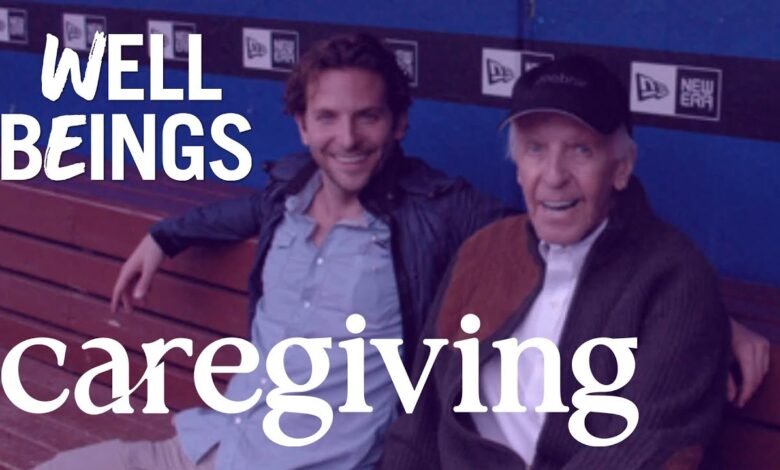A Comprehensive Review of the Documentary “Caregiving” (2025): A Global Wake-Up Call to Strengthen Families Through Compassion and Policy

Overview
The documentary Caregiving is a two-hour documentary that places the deeply personal act of caring for a loved one into public conversation, not just as a private duty but as a societal imperative. Executive produced by actor and caregiver Bradley Cooper, and narrated by award-winning actress Uzo Aduba, who cared for her mother before her passing, the film centers on lived experiences of caregivers both unpaid and paid, whose work underpins global health and social systems but remains undervalued and unsupported.
Although its framing is American, the themes are universal: aging populations, youth caregivers, economic stress, gendered labor, and the urgent need for family-centered care infrastructure.
The documentary is a window into a global caregiving emergency and a call to action for strengthening families through sustained care, policy, and support.
Bradley Cooper: A Personal Story Becomes a National Mission
Bradley Cooper’s involvement is deeply personal. He cared for his father, who battled lung cancer. This experience transformed his understanding of caregiving:

“When my father was diagnosed with cancer, that was a wake-up call for me, one that really opened my eyes to the world of caregiving.”
He describes caregiving as overwhelming and isolating:
“Everyone will end up caring for a loved one at some point in their life. The level of loneliness can overcome an individual going through this — it’s overwhelming.”
Cooper’s story is more than a celebrity anecdote; it frames the documentary’s emotional core. His transition from caregiver to advocate and producer gives the project authenticity and urgency. He calls caregivers “heroic people,” and his mission is to raise the banner nationally:
“Raising this conversation on a national level will help, and together, I believe we can make a difference.”
Caregiving Through a Family-Strengthening Lens
From a family-strengthening perspective, caregiving is a cornerstone of human survival and dignity. Families whether nuclear, extended, chosen — are the primary caregivers in every country. They often step in where formal systems fail, filling critical gaps in elder care, disability support, chronic illness management, and child rearing.
This documentary highlights how that sacred responsibility can become unsustainable, isolating, and underappreciated, even as families do their best to hold each other together.

The Numbers Are Staggering and Global
While the documentary anchors its statistics in the U.S., the crisis transcends borders:
-
Over 1 billion unpaid caregivers globally provide essential care to the sick, elderly, and disabled, according to WHO.
-
In Sub-Saharan Africa, children as young as 9 are primary caregivers for HIV-positive parents and younger siblings.
-
In Asia, over 300 million people live in multigenerational homes, where caregiving responsibilities disproportionately fall on women.
-
In Latin America, 80% of care work is unpaid and carried out by female relatives, contributing to income gaps and social exclusion.
-
The global economic value of unpaid care work is estimated at $10.8 trillion annually, according to Oxfam, more than the tech industry’s combined value..
A Global Family-Strengthening Imperative
At its core, Caregiving challenges us to shift our lens from individual struggle to systemic failure. Families should be strengthened by support, not broken by care responsibilities.
From a family-strengthening perspective, the film’s themes are urgent:
1. Families Are Doing the Work of Nations
Governments have outsourced critical social care responsibilities to families without providing infrastructure or compensation. Around the world, the invisible labor of caregiving often replaces formal care systems.
2. Caregiving Is Often Gendered and Exploitative
Globally, women do over three times as much unpaid care work as men. In some countries, it’s over five times. The result? Women exit the workforce, lose income, pensions, and independence, deepening cycles of poverty and dependence.
3. Young Caregivers Are Invisible
Today millions of children and adolescents are caregivers. Their education, mental health, and futures are compromised, yet most remain unsupported and unrecognized in policy frameworks.
4. The Emotional Cost Is Universal
Whether in a high-income country or a low-income village, caregiving often isolates. It brings grief, anxiety, burnout, and fear. The documentary captures this raw truth: the mental health toll of caregiving is immense and rarely addressed.
What Needs to Change?
Caregiving raises awareness, but awareness must lead to action. Globally, we must commit to these core shifts:
-
National caregiving strategies, with investments in care infrastructure and universal access to affordable support services.
-
Paid family and medical leave as a global standard, not a luxury of wealthy nations.
-
Training and support for youth caregivers, including school accommodations and mental health services.
-
Direct payments or tax credits for unpaid family caregivers, valuing care as labor.
-
Public campaigns to dismantle stigma and normalize care as a shared societal duty.
Conclusion
Caregiving is not just a documentary, it’s a movement to humanize, professionalize, and globalize the care conversation. Whether you’re a policymaker, NGO leader, employer, educator, or caregiver yourself, this film is your invitation to act.
“The act of giving and receiving care touches the lives of every human being,” says Sharon Percy Rockefeller, president and CEO of WETA. “The selfless act of caregiving is a most worthy cause to activate the power of public media.”
In every home, in every country, someone is quietly holding their family together, often alone.
Let this film remind us: they shouldn’t have to.
Caregiving premieres June 24, 2025, on PBS, YouTube, and the PBS App. Early streaming began May 27 at wellbeings.org.
▶️ Watch it. Share it. And above all, act on it.




